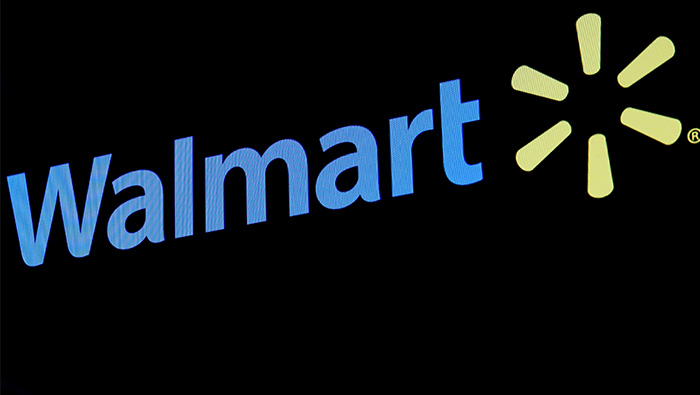
New York/Mumbai: Walmart Inc said on Wednesday it will pay $16 billion for a roughly 77 per cent stake in Indian e-commerce firm Flipkart, the U.S. retailer's largest-ever deal as it competes with Amazon.com Inc in an important growth market.
Shares of Walmart fell 3 per cent. The company warned it expects the deal to reduce fiscal 2019 earnings by 25-30 cents per share if it closes in the second quarter. It also expects Indian investments to shave 60 cents per share from earnings in fiscal 2020.
Walmart's acquisition opens a new front in its battle with Amazon, which had expressed interest in making a competing offer. Amazon holds about 27 per cent of India's burgeoning e-commerce market, according to Euromonitor, where Walmart only operates 21 cash-and-carry wholesale stores in the country that sell to businesses.
The deal probably will not do much to change market share between Flipkart and Amazon in India, said Jason Benowitz, senior portfolio manager at the Roosevelt Investment Group. In the fiscal year ended March 31, Flipkart reported sales of $4.6 billion.
Flipkart sells consumer goods ranging from soaps to smartphones and clothes, and gives Walmart access to an e-commerce market that could be worth $200 billion a year within a decade, according to Morgan Stanley.
Walmart expects the deal to help set it up "for growth and profits in the future," Chief Executive Officer Doug McMillon said on a call with investors. McMillon has led Walmart's efforts to boost international business.
Walmart said Flipkart's logistics, payments and apparel businesses offer new areas of growth.
"It is not so much about succeeding in India for Walmart because that may or may not happen," said Neil Stern, senior partner at retail consultancy McMillan Doolittle. "It is really about grabbing an opportunity after waiting on the sidelines in a growth market for over a decade," he said.
Walmart entered the Indian market in 2007 through a joint venture with a local company, years before Amazon debuted there. That joint venture was called off in 2013 and its presence in India has remained largely static, at least partly due to restrictions around foreign investment in physical retail.
Focus on international business
Walmart has renewed its focus on catching up with rivals in key international markets.
The company retreated from Britain, selling a controlling stake in its British arm ASDA to J Sainsbury Plc. Walmart is also trying to offload a majority stake in its Brazilian operations to private equity firm Advent International.
International business contributed less than a quarter to the retailer's total revenue of $500 billion in fiscal 2018.
Walmart said it plans to fund the India deal through a combination of newly-issued debt and cash on hand. The investment will include $2 billion of new equity funding.
Walmart said it remains in talks with other potential investors to join the funding round. This could lower its stake although Walmart plans to retain majority control. Reuters has reported Google-parent Alphabet may buy a roughly 15 per cent stake in Flipkart for $3 billion.
The remainder will be held by existing shareholders, including Flipkart co-founder Binny Bansal, China's Tencent Holdings Ltd, Tiger Global Management and Microsoft Corp, the company said.
The Walmart statement made no reference to the exit of Flipkart co-founder Sachin Bansal or SoftBank Group, which was one of the largest investors in Flipkart through its Vision Fund. Reuters had reported that Bansal and SoftBank would sell their entire stakes.
Other investors like Naspers and eBay said they sold their holdings in Flipkart. S&P Global Ratings revised its outlook for Walmart to "negative" from "stable," citing risk as the retailer spends heavily to expand its online and global reach. Walmart’s long-term corporate credit rating was affirmed at "AA”, S&P said.
"Walmart has a very poor track record operating outside North America," said Steven Roorda, portfolio manager with Minnesota-based Stonebridge Capital Advisors, which invests in retailers. "We will not know for five to 10 years whether this transaction is successful strategically or financially."